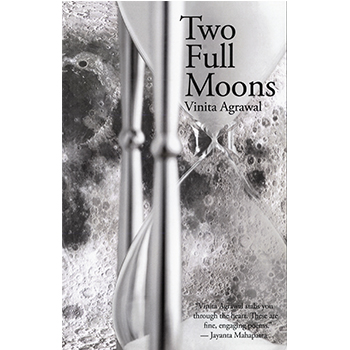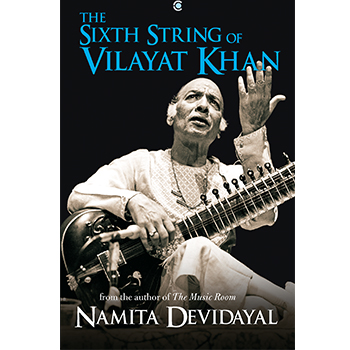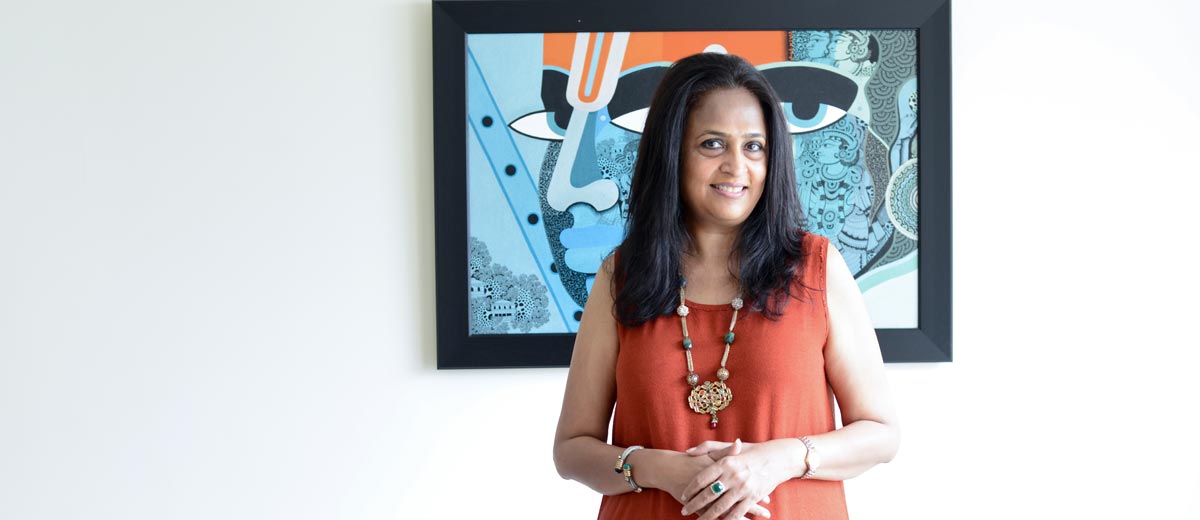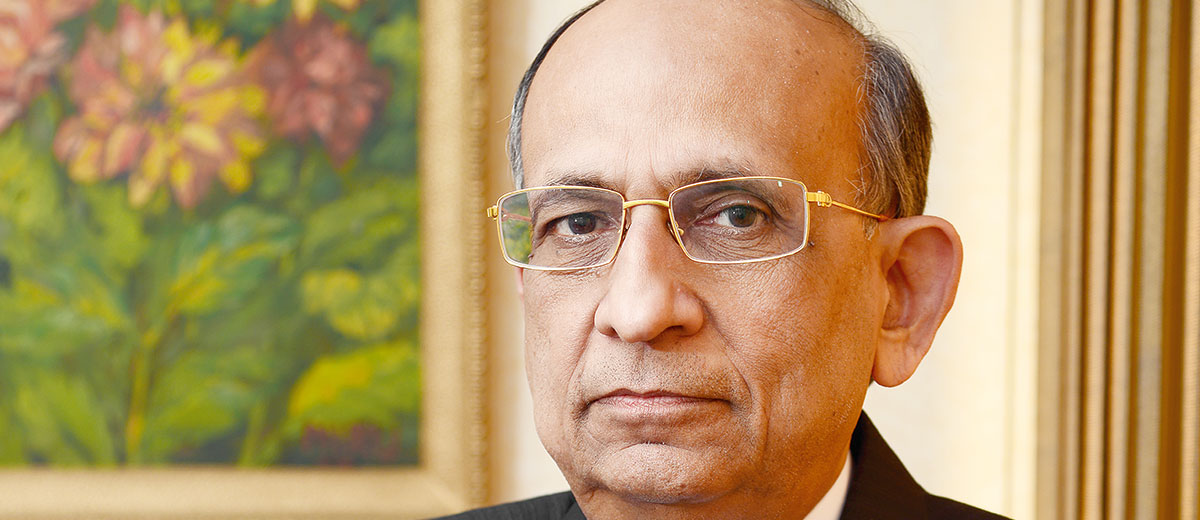
Verses From the Heart
Unlike most poets, Vinita Agrawal feels compelled to write poetry when she feels it will do justice to her thoughts or expressions. An award-winning poetess who has four books of poems to her credit, she considers recognition to be a bonus and actually derives more satisfaction from connecting with her readers, as becomes clear when she says, “Poetry has become my tool for communicating with people across all divides; it has taken my words to people living in small towns to those living across the seven seas. And that is what I cherish the most.”
Understandably then, Agrawal loves to do live readings of her poetry, since it gives her the opportunity to connect with her readers, get their instant feedback and witness the joy of seeing her words settle in people’s hearts. Till date, she has read at Kala Ghoda Arts Festival, SAARC literature festivals, 100 Thousand Poets for Change, Lucknow Literature Festival, US Consulate Generals (Hyderabad and Mumbai), Max Mueller Bhavan (Mumbai), Delhi Poetree, Cappuccino Readings and various women’s empowerment events.
And the accolades continue to pour in. Her poetry has earned her the Gayatri GaMarsh Memorial Award for Literary Excellence (2015), the second prize at TallGrass Writers Guild Award (2017), the Proverse Poetry Prize (2017) and a joint winners’ title at Rabindranath Tagore Literary Prize (2018). Recognition from national and international journals have come too: Her poems have appeared in Cha: An Asian Literary Journal, The Fox Chase Review, Pea River Journal, Open Road Review, The Stockholm Review of Literature and Poetry Pacific, among others.
An early start
 There was never a time in Agrawal’s life when she was not writing poetry. “I suppose, I had an inborn inclination for it,” she says. “My mother used to tell me that I had started writing really young, referring to a poem that I had written on my doll when I was five.”
There was never a time in Agrawal’s life when she was not writing poetry. “I suppose, I had an inborn inclination for it,” she says. “My mother used to tell me that I had started writing really young, referring to a poem that I had written on my doll when I was five.”
Agrawal was born in Bikaner, where her father’s family is originally from. His job with the National Dairy Development Board meant that the family would move homes according to his postings. This resulted in Vinita schooling in Anand, Gujarat and at Kalimpong and Kolkata in West Bengal. Later she acquired a bachelor’s degree in arts and a master’s degree in political science from The Maharaja Sayajirao University of Baroda and finally a diploma in computer programming from Aptech.
Reminiscing about her life in her paternal home, Agrawal says, “Ours was a very close-knit family. We lived simply, but delightfully. My parents, who are no more, loved me unconditionally and encouraged me to pursue all kinds of activities. They read a lot of fiction—my mother liked Hindi fiction—and I picked up the habit of reading from them.”
Themes for poetry
Agrawal’s poetry is influenced by life, more so by the experiences that she and other people around her have undergone. “Sometimes, even a beautiful poem written by someone else sparks off an epiphany inside me. The poets I am most influenced by are Jayanta Mahapatra, Pablo Neruda and Rumi. Amongst contemporary poets, I admire the works of Ranjit Hoskote, Arundhathi Subramaniam and Sumana Roy,” says Agrawal talking about her poetic inspiration. Coming to the themes of her work, she adds, “My poems seek to engage with the spirituality lying dormant within all of us. They rely on vivid imagery and gentle language to essay a point of view that is positive, hopeful, believing and healing. I write about existential angst, women’s empowerment and the things that I observe around me. In one word, perhaps you could call my poems ‘humane’.”
Agrawal also describes her poems as existential in nature and a representation of loss and grief, pride and joy, betrayal and pain, and life and death from a universal perspective. “Pain has a penumbra of numbness attached to it and sooner or later, we veer towards this numbness. My poems veer towards this invisible, fine shift that leads to a state of stillness. Endurance, in every form, is at the core of my writing,” she says.
Agrawal’s first three books—Words Not Spoken, The Longest Pleasure and The Silk of Hunger—were published within three years. Two Full Moons, her latest book (published by Bombaykala), was launched in November 2018. Speaking about the book, Agrawal says, “Two Full Moons is a book of self-exploration and self-discovery. It seeks to address questions of existential angst by finding the universal in the personal. The poems probe into how distinctive individual experiences become essentially ubiquitous in the cosmic frame of things and how, when the canvas expands, uniqueness dissolves and gives way to a fluidity of undergoing for everyone who lives and endures. They highlight some of the violence, anger and anguish that we see around us and lead us into a space where inner calm and peace appear as better options.”
Beyond poetry
 Agrawal currently lives with husband Dinesh and son Apurv in Mumbai. Having worked in the corporate world for more than 30 years, her husband plans to retire in 2019. Agrawal’s son, after earning his degree in music production and sound engineering from McNally Smith College of Music in USA, has returned to India and is attending to the sound-related needs of corporate organisations and advertising agencies on a freelance basis.
Agrawal currently lives with husband Dinesh and son Apurv in Mumbai. Having worked in the corporate world for more than 30 years, her husband plans to retire in 2019. Agrawal’s son, after earning his degree in music production and sound engineering from McNally Smith College of Music in USA, has returned to India and is attending to the sound-related needs of corporate organisations and advertising agencies on a freelance basis.
Looking back at it all, she appreciates the extraordinary support extended by her family towards her passion for writing. She says, “My parents were very proud of my work—you know how parents are! My husband too is very encouraging and gives me the space to pursue my career. My son, being a millennial, gives me inputs about various aspects of managing my website, book contracts, etc. He is a great help!”
When not writing, Agrawal devotes her time to cooking, gardening, music and reading.
Plans for tomorrow
 Thriving like never before. She explains why: “Young people are writing poetry and they have a fierce attitude towards injustice of any kind. Women too are stepping out and sharing their stories of abuse through poetry. Then there are poets who are translating the wonderful legacy of regional poetry.” Adding that the Internet has made a poet out of almost every one, she says, “Everyone has a Facebook wall or a Twitter handle and they are free to post their verses there. Millions indulge in it and, therefore, reading poetry too has become popular.”
Thriving like never before. She explains why: “Young people are writing poetry and they have a fierce attitude towards injustice of any kind. Women too are stepping out and sharing their stories of abuse through poetry. Then there are poets who are translating the wonderful legacy of regional poetry.” Adding that the Internet has made a poet out of almost every one, she says, “Everyone has a Facebook wall or a Twitter handle and they are free to post their verses there. Millions indulge in it and, therefore, reading poetry too has become popular.”
So, how does she plan to take her poetic journey to the next level? In response, Agrawal reveals, “I believe in destiny. I also believe that journeys write themselves. We are only travellers on the path. New twists and turns, fresh surprises and unexpected tangents make the road more exciting, more challenging. Philosophy aside, I like to take each day as it comes and keep my priorities clear so that I do not sway too far. It is all about living life at a leisurely pace—savouring every minute, cherishing every hour and always striking a balance between family, work and hobbies.”










